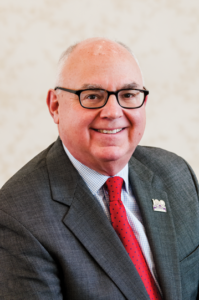It should be no surprise to anyone when I say that, outside the realm of traditional collective bargaining, the 20th century structure of our Federation does not match the 21st century ever-changing business of music and the needs of the musicians who must evolve with it. Technology, product distribution and consumption, AI, copyright, legal niceties or lack thereof, and a society that has been stood on its head have all conspired in a manner to place great economic pressure on musicians just to survive as such, not to mention the stresses placed upon the creative processes that are so much a major part of who we are. That’s why I find nothing more gratifying than to see a whole cadre of musicians that have identified a common need and who organize to demand satisfaction.
In my column last month, I made note of a few of the organizations that have formed just for that purpose—UMAW, Music Workers Alliance, and the Indie Musicians Caucus of the AFM. I wrote about the obstacles that US labor law places in the way of musicians who need to organize outside of the traditional collective bargaining realm, and the potential legal sink holes that may confront any group of independents building for collective action outside the legal shield of a union. My purpose in that column was solely to bring into the light of day a quick exposition of unfairness of US labor law for American musicians and to state unequivocally that, notwithstanding legalities, what these groups seek is what we all want.
It was with a certain amount of bemusement, therefore, to receive a letter for “Feedback” from a passionate member who managed to glean meanings from my writing that were neither intended nor implied.
The main thrust of the member’s letter was focused on the AFM’s current bargaining with the record labels and the overarching imperative to lock down the “three C’s,” i.e., consent, credit, and compensation for musicians as that relates to the use of artificial intelligence in sound recording production, along with finding a way to realize meaningful health care benefits from the industry for musicians who don’t otherwise qualify for employee benefits. A quick read of AFM President Gagliardi’s column in this issue ought to provide some reassurance to the member of the bargaining team’s commitment to these goals.
What particularly caught my attention, though, was the member’s questioning of this union’s commitment to the needs and demands of indie and freelance musicians, both within the recording arena and beyond. Evading a core mission was certainly not the point of my writing, and—at least from my viewpoint—it would require the equivalent of an accomplished yoga practitioner to wrangle interpretation from what I wrote last month.
I acknowledge, however, that perception belongs to the reader, not the writer, and I therefore wish to state the following in as unambiguous a manner as possible.
The AFM International Executive Board has allocated an unprecedented near 10% of the 2026 budget in new expenditures toward building member strength, with the intention going forward to amplify that even more. The Organizing Department is expanding as I write this, specifically with the aim of directly partnering with local unions, both locally and regionally, to strengthen existing conditions and build solid local musician communities to manifest their goals. Strength and solidarity at the local level translates to strength at the international level.
The board has affirmatively determined that this union must devote its resources to organizing to build power to enable members to attain fairness in the labor market and justice in the political realm by building membership in touring, freelance, recording, and local gig markets and developing power to achieve strong contracts—whatever that means and whatever it takes—in the US and Canada—with or without helpful labor laws.
Read More

